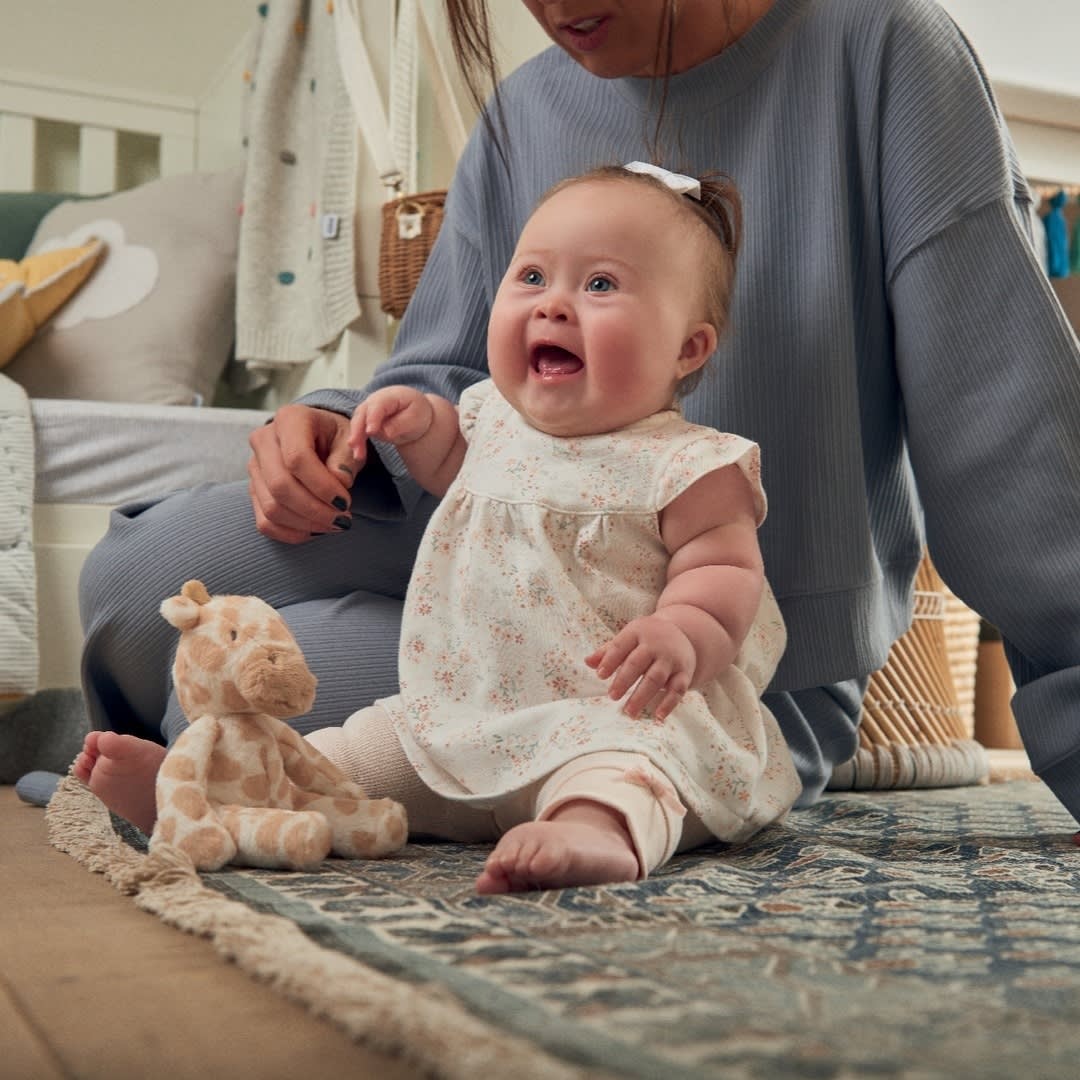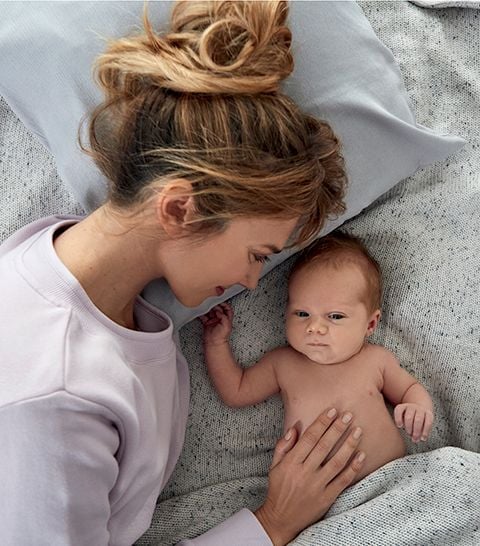
At what age will my child say their first word?
Each baby and their growth journey is unique. While some infants can start saying their first words by nine months, others do so by 18 months. They begin with simple words like “mama”, “dada”, “hi”, and “bye”, or in some cases, learn how to say “doggy”, “kitty”, “cookie”, or “milk”.
Respond to their first attempts with a smile and create eye contact to communicate that you’ve heard them. Your undivided attention will encourage the baby to expand their vocabulary and speech-related skills.
What speech milestones should I look out for?
While saying their first word is one of the most celebrated milestones in their speech development, your little one has gone through several landmarks preceding this moment. Understanding these will help you appreciate your baby’s little wins along the way.
0-6 Months
As explained in the blog earlier, your baby listens to you from day one. During the initial months, they learn to associate sounds with their sources, like meowing from the family cat. Language acquisition marks the first step in their speech journey. Remember to watch what words you say around your little one as they take in everything in their learning process.
Between zero to six months, your baby’s primary means of communication with you will be crying. You may also notice that their cries differ if they’re hungry, tired, or in pain. Soon enough, they will start using their tongue and lips to make gurgles and simple sounds such as “oo” and “aa”.
4-6 Months
Around four to six months, you’ll notice some subtle yet significant leaps in their speech learning. Their sighs will lead to babbling, and they’ll speak consonant sounds like g and k along with lip sounds like m, w, p, and b. During this time, they also start recognising familiar words such as “mommy”, “daddy”, and their name. By six months, your little one will understand that the jumble of words they hear daily comprises individual words.
7-12 Months
At nine months, your baby will have learned some verbal and non-verbal communication. You’ll notice them raising their arms to tell you they want to be picked up or point at a toy or object they want to reach. In terms of speech, they will try mimicking other people’s sounds and gestures, start putting together “ma-ma” and “da-da”, and understand what “no” means. In some cases, this might be the time when they speak their first word. If not, they’ll most likely do so by the one-year milestone. As the months pass, they’ll gain more control and combine sounds.

How can I help with my child’s speech development?
Since your little one is listening to everything from day one, it is best to start talking to them early. You can narrate your day, a story or simple day-to-activities such as describing what you’re doing as you change their clothes or nappies. Below, we have listed out tips you can incorporate to support your baby’s speech development.
Speak slowly and clearly.
When you speak, your baby observes your facial expressions and lip movements to learn how to make the same sounds. By speaking slowly, you allow them the time to grasp these details. You can start with the words you want them to learn first, such as “hi” or “bye”, and include them in conversation often. For example, you can say “Bye birdie” when a bird sitting on the window flies away or “Hi teddy bear” when you hand them the toy.
Names instead of Pronouns
To keep things simple for the baby, use names in sentences instead of pronouns. By doing this, the baby will easily associate the name or relationship with a face or a person. For instance, “This is daddy’s drink”, and “This is John’s milk”.
Repetition. Repeat. Repeat
Whenever we try to acquire a new skill, the more we practice it the better we become at it. The same goes for babies. Repeat the words you’d like them to learn regularly. When you take them for a walk, point to the same tree or flower daily. This will reinforce your kid’s understanding of how a word links to a particular thing — what these words actually mean.
When should I visit a doctor for delays in speech development?
If your baby is not showing optimal speech development at the below stages, visit the paediatrician for a check-up:
- Four to seven months: not babbling
- 12 months: only making a few sounds or gestures
- 12-15 months: not able to say simple words like "ma-ma" or "da-da"
- 18 months: Unable to understand words like “no” or “stop”
The above symptoms could hint towards hearing difficulties, language delays or autism. For speech development concerns, it is best to visit your doctor sooner rather than later as it may help diagnose the problem at an earlier stage.

What is the next milestone?
Once they have uttered their first “real” word, your baby will expand their vocabulary further. By 15 months, their range will increase from 4 to 20 words. And at 18 months, they will be learning a new word per week. Soon enough, you’ll have complete conversations with your young ones and enjoy their adorable storytelling and attempts at saying more complex words.




